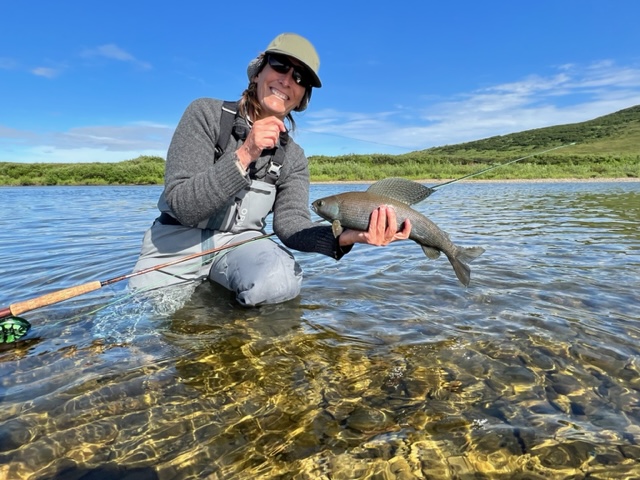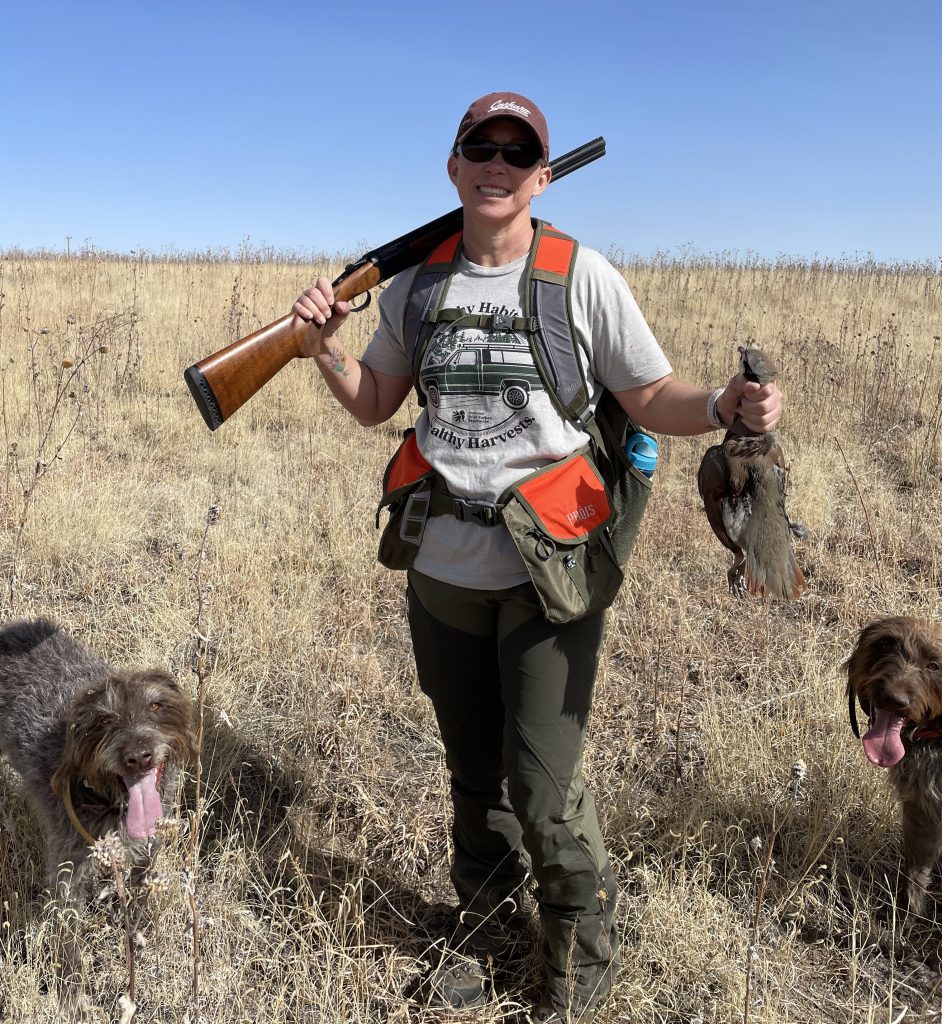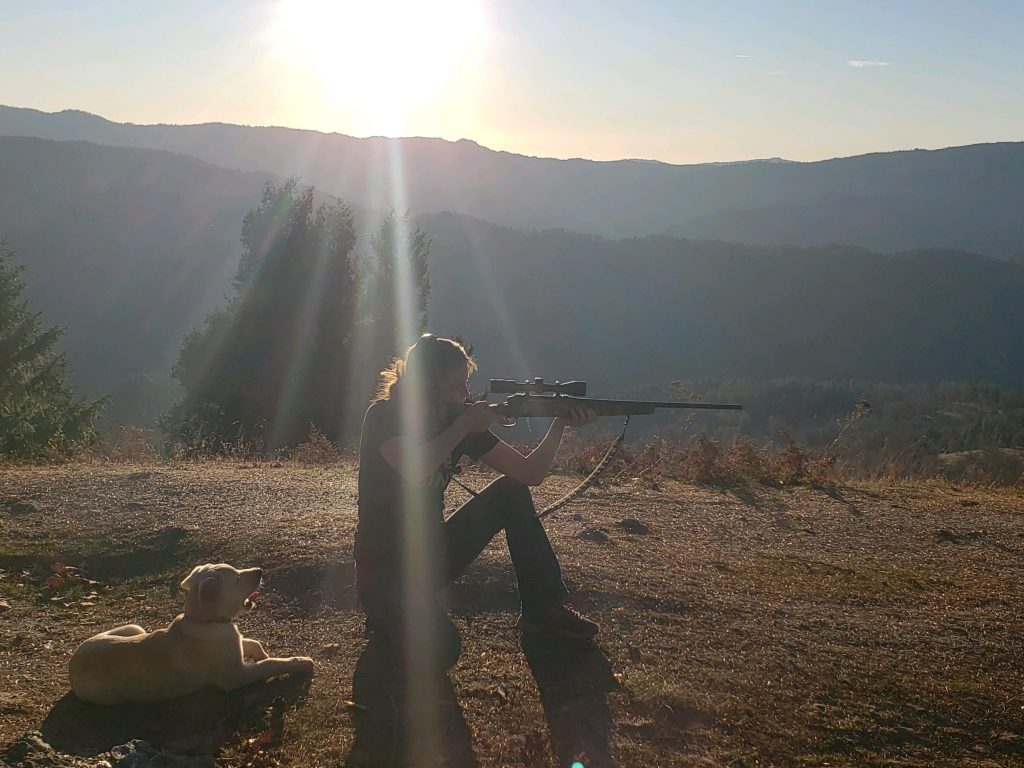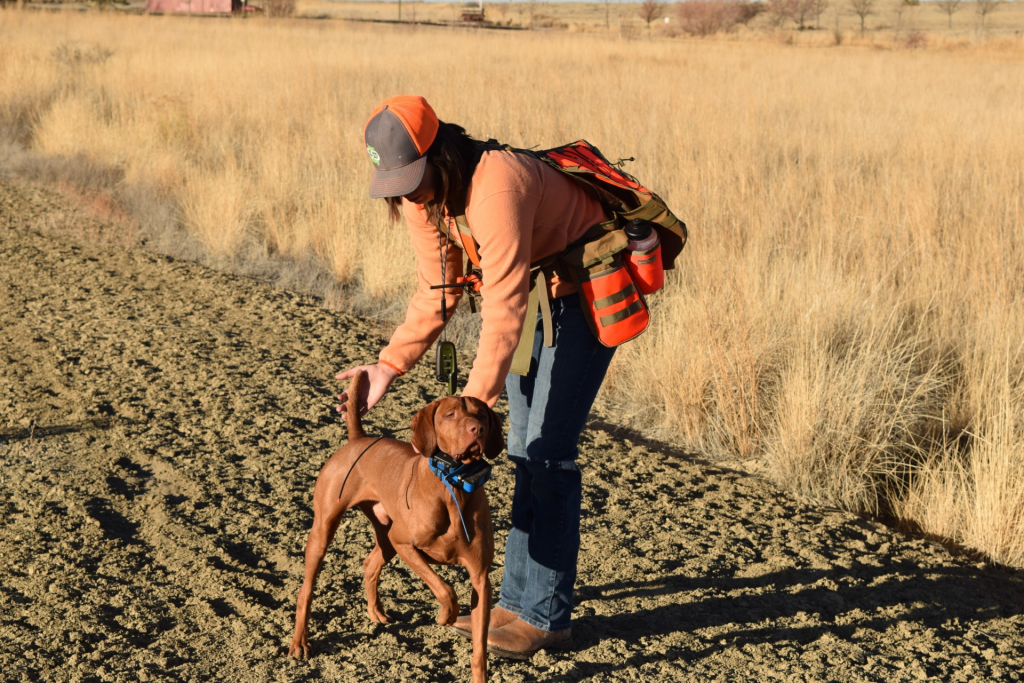Faces of Conservation: NWTF Staff Spotlight Series
Within the National Wild Turkey Federation, numerous individuals, both in the field and behind the scenes, play vital roles in advancing our mission to conserve wild turkeys and uphold our hunting heritage.
The NWTF, acknowledging the significance of diverse voices in this industry, will work to spotlight the stories of these passionate individuals within the organization in hopes of inspiring the next generation of conservationists.
The first in a series highlighting these stories, NWTF women in the Western region — Patt Dorsey, Molly Pitts, Krista Modlin and Liz Dowling share their experiences.
Patt Dorsey—Director of Conservation Operation in the West

In her role as the Director of Conservation Operations in the West, Patt Dorsey dedicates herself daily to supporting and recognizing the dedicated individuals she works with as they build strong partnerships across the West to achieve significant forest restoration goals.
As a conservationist, writer, photographer and inspirational woman, Dorsey has contributed many years to NWTF's mission of wild turkey conservation and providing recreational opportunities for future generations. Focusing on the unique challenges in the west, Dorsey is at the forefront in the fight for the safety of our forests, watersheds, wildlife and communities.
Dorsey's lifelong immersion in the outdoors has fueled her passion for a career in conservation—a path she knew she wanted to pursue from an early age.
“I am lucky to have grown up in a family that was connected to the outdoors on many levels. On my dad’s side of the family, my dad and my grandpa hunted cottontail, pheasants and waterfowl and from as early as I remember, I wanted to go. I passed hunter education when I was 9 years old and am lucky to have many family memories. My grandma didn’t hunt, as very few women did back then. She was a school teacher, an excellent naturalist and a great cook.”
With the support of her family, Dorsey pursued her dream of becoming a wildlife biologist by attending Colorado State University. Soon after graduating, she secured a full-time position with the Colorado Division of Wildlife. Dorsey attributes much of her success and passion for conservation to her grandmother, who was “an inspiration and support system, she taught me to be a good naturalist – no matter what you learn in books, it can’t replace a good overall understanding of nature.”
Looking to the future, Dorsey recognizes the importance of collaboration in striving for a better future. “I hope we get to a place in conservation where we can replace a win-lose mentality with a philosophy of working together to ensure a future for the wildlife we value,” she says. We need to replace infighting with big-picture thinking. I hope we can secure a place for hunting and angling in an increasingly urban world.”
With this, Dorsey understands the importance of inspiring young people to get involved in conservation. With a collaborative mindset, we also need diverse voices at the table to move us forward.
“We need skilled biologists, who care about the resources and are willing to work with people to protect them. The most common misperception about working in conservation is that you work with wildlife all the time. The good part though, is that you get to work FOR wildlife all the time.”
Molly Pitts—Wildfire Crisis Manager

Molly Pitts, NWTF Wildfire Crisis Manager, exemplifies a woman on the forefront of conservation efforts. Working to implement the Master Stewardship Agreement, she strives to get more work done on the ground to protect communities from wildfire and improve and enhance wildlife habitat. Instrumental to the implementation of projects including the Timber Transport Pilot, Six Shooter Forest Stewardship Projectand the Hawks project, her dedication underscores the significance of engaging in conservation work, as its impacts are felt by all.
“Our natural resources are critical to every part of our lives and sadly, due to so many factors, are facing tremendous challenges. If you are passionate about our natural resources or just enjoy being outdoors, get involved. You will not be disappointed!”
Inspired by the effects of wildlife conservation challenges from the endangered Mexican Spotted Owl, Pitts became interested in learning more about endangered species and overall forest management. As she pursued her major in Forestry in college, Pitts developed a profound love for the outdoors. It was during this period that she became acutely aware of the unique challenges confronted by women in the field of forestry and conservation.
“In college, I was one of three women studying forestry in a class size of 25. Then, during my first season on a remote fire crew, I was the first woman to have ever served at that location. After graduating and moving to deep east Texas, I found it difficult to find work due to my gender. My next move took me to New Mexico, where the company that was looking for two foresters would only hire my husband, stating that it was too ‘dangerous’ for me to work in the woods. Finally, after moving back to Arizona, I was able to get a field forestry job and then eventually a job working with the timber industry. For the longest time, I was one of the youngest and sometimes the only woman at particular meetings.”
Despite facing obstacles, Pitts persevered and has forged a successful career in conservation. She is supported by her husband, with whom she shares many outdoor adventures to this day.
“As I look toward the future of conservation, I am hopeful that I will continue to be part of such important work. Although it is not always easy, and some days are just plain hard, I am truly proud of the work that is getting accomplished.”
Krista Modlin—District Biologist for California, Oregon, Washington and Nevada

Krista Modlin, serving as a district biologist overseeing four states, has her hands full with many stewardship projects. Now with a new baby, Modlin embraces her new role as a parent while navigating the responsibilities of conserving the forests she cherished while growing up for future generations to enjoy.
“I knew as a very young child I wanted to work in the field of wildlife conservation. I always had a passion for loving animals and knew I wanted to do what I could to conserve wildlife. Growing up in the central valley of California, we were in close proximity to the ocean or a quick drive to Tahoe. There was never a shortage of things to do! As a parent myself now, it is really important to me to continue to pass on these memories and traditions.”
Engaged in initiatives such as the Cleveland-Icehouse Stewardship Project and the Sacramento Valley mentorship program, Modlin hopes to see continued success and the importance of education to the public about the benefits of conservation. Modlin encourages women aspiring to enter the conservation field to “keep their heads high and go for it” and focus on building experience by seeking diverse experiences through volunteering and work opportunities.
"One of the biggest challenges is still working in a very male-dominated field. I have felt intimidated at times, but holding my head high and holding my ground has helped me overcome this. Recently, having a baby has added a whole new level of challenges as well, but it has been the most rewarding time of my life. I think my stubbornness has played a huge role in my success because I have always refused to give up and refuse to fail."
Liz Dowling—Rocky Mountain Restoration Initiative Coordinator

As the Rocky Mountain Restoration Initiative Coordinator for the NWTF, Liz Dowling has been instrumental in facilitating connections between the NWTF, other non-governmental organizations, and the Forest Service to implement vital landscape work in Colorado. Embracing the concept of shared stewardship, Dowling leads the RMRI in efforts to bolster the resilience of forests, wildlife habitats, communities, recreation opportunities and water resources across the Rocky Mountains.
Growing up outside of the outdoor recreation world, Dowling recounts her journey in conservation work.
“I probably should have been a blue-collar worker or a teacher in New York like the rest of my family. The Bronx Zoo was my only connection to conservation at that time. Colorado State University was where my conservation career began, volunteering and later working for Colorado Parks and Wildlife in college, trapping and collecting data on black bears. Although I wasn't the most qualified on paper, Colorado Parks and Wildlife researcher Heather Johnson gave me the chance to learn. As a first-generation college student and the new kid in conservation, I had a steep learning curve, but there was this growing passion that I never knew about and I wanted to pursue it.”
Now living in western Colorado, Dowling spends her free time training her two vizslas to hunt and competing in horseback field trials/hunt tests.
“After studying and collecting data of animal behavior on bears, elk, mountain lions and wolves - studying bird dogs filled that same cup. My mentor, Imelda Reveles, owner of Fusion Vizslas, is the strong female influence in my life who has taught me everything I know. We've been training together for 6 years and she continues to teach me discipline, strength and kindness beyond measure. Her amazing character always reminds me to help support the next rising generation of women in the outdoors and conservation.”
Her advice for the next generation:
- Never lose your childlike wonder! Find your passion and develop it.
- Be a sponge. Absorb everything you can from your supervisor and colleagues. Build out a set of tools that's authentic to you that you can utilize in your day to day.
- Find your community and embrace who you are.
